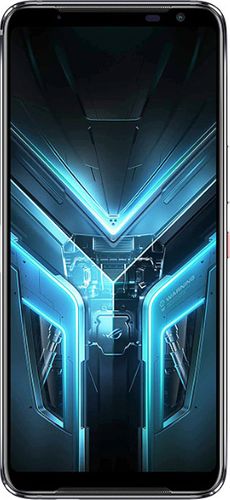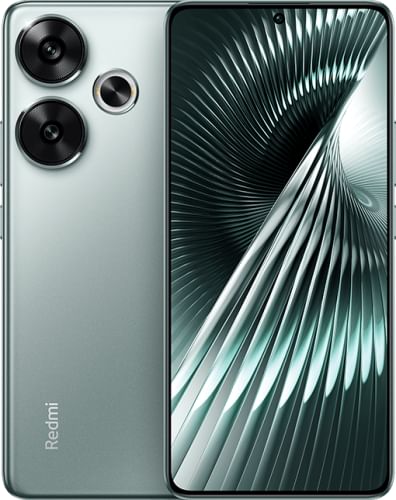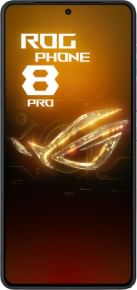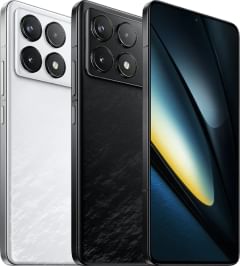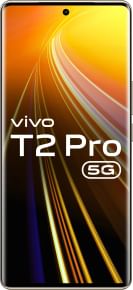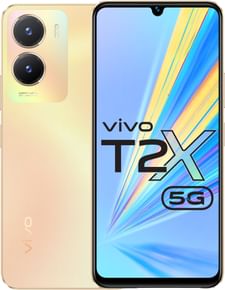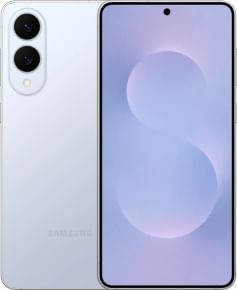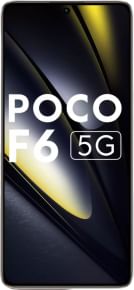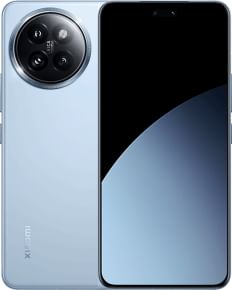Asus ROG Phone 3 Strix Edition vs Xiaomi Redmi Turbo 3
Quick Comparison
Xiaomi Redmi Turbo 3 has better RAM than Asus ROG Phone 3 Strix Edition. In terms of display resolution, Xiaomi Redmi Turbo 3 has better resolution of 2712 x 1220 than Asus ROG Phone 3 Strix Edition which has resolution of 2340 x 1080. Xiaomi Redmi Turbo 3 has more internal memory than Asus ROG Phone 3 Strix Edition
| Name | Asus ROG Phone 3 Strix Edition | Xiaomi Redmi Turbo 3 |
| RAM | 8 GB | 12 GB |
|---|---|---|
| Display | 6.59 in | 6.67 in |
| Internal Memory | 128 GB | 256 GB |
| Battery | 6000 mAh | 5000 mAh |
| Camera | 64 MP + 13 MP + 5 MP Triple | 50 MP + 8 MP Dual |
| Price | Rs. 59999 | Rs. 23990 |
Related Products
Detailed Comparison
Price And Launch
The launch Date of the first phone is July 22, 2020. The cost of Asus ROG Phone 3 Strix Edition is Rs. 59999. The launch Date of the second phone is April 10, 2024. The Expected cost of Xiaomi Redmi Turbo 3 is Rs. 23990.
Display comparison
Xiaomi Redmi Turbo 3 has larger screen size of 6.67 inches in comparison to Asus ROG Phone 3 Strix Edition's 6.59 inch screen. Both the phones have AMOLED Screen Type. Xiaomi's phone has display density of 446 PPI & Asus's phone has only 391 PPI display density. In terms of screen to body ratio, Xiaomi's phone has better screen to body ratio of ~ 89.9% than Asus's phone ~ 79.9%. Asus ROG Phone 3 Strix Edition has 19.5:9 aspect ratio where as Xiaomi Redmi Turbo 3 has 20.1:9 aspect ratio.
Memory comparison
Xiaomi Redmi Turbo 3's larger 12 GB RAM is better for playing games and all with respect to Asus ROG Phone 3 Strix Edition's lower 8 GB RAM. Xiaomi Redmi Turbo 3 has more Internal Memory (256 GB) than Asus ROG Phone 3 Strix Edition (128 GB).
Camera comparison
Asus ROG Phone 3 Strix Edition's 64 MP + 13 MP + 5 MP Triple Rear Camera outclasses Xiaomi Redmi Turbo 3's 50 MP + 8 MP Dual Rear Camera in terms of resolution. Asus ROG Phone 3 Strix Edition will be better choice if you're looking to click lot of selfies as it has better 24 MP Front Camera in comparison to Xiaomi Redmi Turbo 3's 20 MP Front Camera.
Technical comparison
Both the phones has Android Operating System but the first one runs on version 10 and the second one on 14 version.
Related Comparisons
Full Comparison
| Name | Asus ROG Phone 3 Strix Edition | Xiaomi Redmi Turbo 3 |
| General | ||
| Model | ROG Phone 3 Strix Edition | Turbo 3 |
| Sim Type | Dual Sim, GSM+GSM | Dual Sim, GSM+GSM |
| Dual Sim | Yes | Yes |
| Sim Size | Nano+Nano SIM | Nano+Nano SIM |
| Device Type | Smartphone | Smartphone |
| Release Date | July 22, 2020 | April 10, 2024 |
| Design | ||
| Dimensions | 78 x 171 x 9.9 mm | 74.4 x 160.5 x 7.8 mm |
| Weight | 240 g | 179 g |
| Bezel less | No | |
| Colors | Black, Green, Titanium, Harry Potter | |
| Display | ||
| Type | Color AMOLED Screen (16M Colors) | Color AMOLED Screen (1B Colors) |
| Touch | Yes | Yes, 240 Hz Touch Sampling Rate |
| Size | 6.59 inches, 1080 x 2340 pixels, 144 Hz | 6.67 inches, 1220 x 2712 pixels, 144 Hz |
| Aspect Ratio | 19.5:9 | 20.1:9 |
| PPI | ~ 391 PPI | ~ 446 PPI |
| Screen to Body Ratio | ~ 79.9% | ~ 89.9% |
| Glass Type | Corning Gorilla Glass 6 | Corning Gorilla Glass Victus |
| Features | HDR10+ | Dolby Vision, Instantaneous Touch sampling rate: 2160Hz , Color gamut: 100% DCI-P3 (typ), Peak Brightness:2100nits, PWM dimming: 1920Hz High-Frequency, 16000-level Automatic Brightness Adjustment |
| Notch | Yes, Punch Hole | |
| Memory | ||
| RAM | 8 GB | 12 GB |
| Expandable RAM | Upto 12 GB Extra Virtual RAM | |
| Storage | 128 GB | 256 GB |
| Storage Type | UFS 4 | |
| Connectivity | ||
| GPRS | Yes | Yes |
| EDGE | Yes | Yes |
| 3G | Yes | Yes |
| 4G | Yes | Yes |
| 5G | Yes | Yes |
| 5G Bands | SA:n38/40/41/77/78/1/3/5/8/28a, NSA:n38/40/41/77/78/1/3/5/8/28a | |
| VoLTE | Yes, Dual Stand-By | Yes, Dual Stand-By |
| Wifi | Yes, with wifi-hotspot | Yes, with wifi-hotspot |
| Wifi Version | Wi-Fi 6 | |
| Bluetooth | Yes, v5.1, A2DP, LE, aptX HD, aptX Adaptive | Yes, v5.4, A2DP, LE |
| USB | Yes, USB-C v3.1 | Yes, USB-C v2.0 |
| USB Features | USB on-the-go, USB Charging | USB on-the-go |
| IR Blaster | Yes | |
| Extra | ||
| GPS | Yes, with dual-band A-GPS, GLONASS, BDS, GALILEO, QZSS, GNSS | Yes, with A-GPS, GLONASS, GALILEO, BDS |
| Fingerprint Sensor | Yes, In Display | Yes, In Display |
| Face Unlock | Yes | Yes |
| Sensors | Accelerometer, E-compass, Gyroscope, Proximity, Hall Sensor, Ambient-light Sensor, Ultrasonic Sensors for AirTrigger 3 and Grip Press | Accelerometer, Gyro, Proximity, Compass |
| 3.5mm Headphone Jack | No | No |
| NFC | Yes | Yes |
| Water Resistance | Yes | |
| IP Rating | IP64 | |
| Dust Resistant | Yes | |
| Extra Features | UFS 3.1, AeroActive Cooler 3, AirTrigger 3 | Dolby Atmos, Dual Stereo Speakers, 3 Major Android Updates &4 Years Security Patch Updates, LPDDR4X RAM, MIUI Dialer |
| Camera | ||
| Rear Camera | 64 MP ƒ/1.8 (Wide Angle) 13 MP ƒ/2.4 (Ultra Wide) 5 MP ƒ/2 (Macro) Macro | 50 MP ƒ/1.6 (Wide Angle) 8 MP (Ultra Wide) |
| Camera Sensor | Sony IMX686 | Sony LYT-600 |
| OIS | Yes | |
| Auto Focus | Yes | Yes |
| Features | HDR, Panorama | HDR, Panorama |
| Video Recording | 8K @ 30 fps UHD, 4K @ 120/30/60 fps UHD, 1080p @ 240/30/60 fps FHD | 4K @ 30 fps UHD, 1080p @ 30 fps FHD |
| Flash | Yes, LED | Yes, LED |
| Front Camera | 24 MP ƒ/2 (Wide Angle) | 20 MP ƒ/2.2 (Wide Angle) Punch Hole |
| Front Video Recording | 4K @ 30/60 fps UHD, 1080p @ 240/30/60 fps FHD | 1080p @ 30 fps FHD |
| Technical | ||
| OS | Android v10 | Android v14 |
| Chipset | Qualcomm Snapdragon 865 | Qualcomm Snapdragon 8s Gen3 |
| CPU | 2.84 GHz, Octa Core Processor | 3 GHz, Octa Core Processor |
| Core Details | 1x2.84 GHz Kryo 585 & 3x2.42 GHz Kryo 585 & 4x1.8 GHz Kryo 585 | 1xCortex-X4 @3.0GHz & 4xCortex-A720 @ .8GHz, 3xCortex-A520 @2.0GHz |
| GPU | Adreno 650 | Adreno 735 |
| Java | No | No |
| Browser | Yes | Yes |
| Multimedia | ||
| Yes | Yes | |
| Music | Yes | Yes |
| Video | Yes | Yes |
| FM Radio | No | No |
| Document Reader | Yes | Yes |
| Battery | ||
| Type | Non-Removable Battery | Non-Removable Battery |
| Size | 6000 mAh, Li-Po Battery | 5000 mAh, Li-ion Battery |
| Fast Charging | Yes, 30W Fast Charging | Yes, 90W Fast charging |
| Reverse Charging | Yes, 10W Reverse Charging | |
